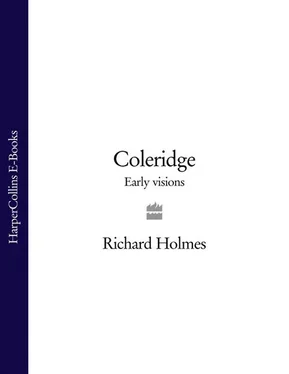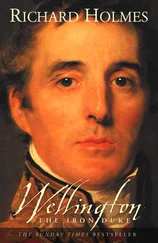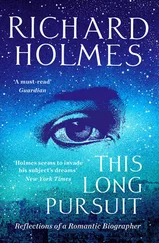Dear native brook! where first young Poesy
Stared wildly-eager in her noontide dream! 36
Paddling, paper-boat sailing, and solemn games of ducks and drakes, are all recalled in later verse. Sam also learned to swim here, a pastime he practised at home and abroad for many years, well into his middle age. The river produced the first really accomplished poem of his youth, which he wrote at the age of twenty-one, while still at university, the sonnet “To the River Otter”.
Here again, the poetic memory is far happier than those of the letters, reaching towards a more universal and perhaps more conventionally acceptable nostalgia for childhood, the Paradise lost, that the Romantics would foster. Yet it is brilliant with living detail, full of Coleridge’s sensitivity to light and movement. The rapid, effortless bouncing stone enacts the freedom of the child’s mind – the skips and flights of the imagination – while the glowing waters become a symbol of memory itself.
…What happy and what mournful hours, since last
I skimm’d the smooth thin stone along thy breast,
Numbering its light leaps! yet so deep imprest
Sink the sweet scenes of childhood, that mine eyes I never shut amid the sunny ray,
But straight with all their tints thy waters rise, Thy crossing plank, thy marge with willows grey,
And bedded sand that vein’d with various dyes
Gleam’d through thy bright transparence!…Ah! that once more I were a careless Child! 37
In his first year at the King’s School (1779) an epidemic swept through the pupils, and both Sam and George lay dangerously ill isolated at the top of the School House with “putrid fever”. This is the first time that Coleridge experienced the terrible nightmares that returned to him intermittently for the rest of his life, dreams so vivid and overmastering that he would wake whole households at Stowey, at Grasmere, and even at Highgate with his screams, and which are the subject – and indeed the inspiration – of many poems. Even as a boy he tried to keep them off with a poetic charm, the old rhyming prayer, “Four Angels round me spread, Two at my foot & two at my head…”
It was to give him a lifelong sympathy not only with other children suffering night terrors, but with any adult friend on a feverish sickbed, to many of whom he would prove a tender nurse. “This prayer I said nightly – & most firmly believed the truth of it. – Frequently have I, half-awake & half-asleep, my body diseased & fevered by my imagination, seen armies of ugly Things bursting in upon me, & these four angels keeping them off.” 38The suspended condition of “half-awake & half-asleep”, with the mind floating and planing between the conscious and unconscious state, always fascinated him.
During this illness, Frank, with typical daring and “in spite of orders to the contrary”, would steal up to read Pope’s Homer to his small brother. Sam also became much closer to George, then sixteen and about to go to Oxford, a quiet, kindly, studious boy whom Coleridge would soon look on as his second father. Of the first fifty letters Coleridge is known to have written, thirty-five were to George; and the Poems of 1797 would be dedicated to him, with an epigraph from Horace, “notable among brothers for his paternal spirit”. 39
He later wrote – before quarrelling with him – “My Brother George is a man of reflective mind & elegant Genius. He possesses Learning in a greater degree than any of the Family, excepting myself. His manners are grave, & hued over with a tender sadness. In his moral character he approaches every way nearer to Perfection than any man I ever yet knew – indeed, he is worth the whole family in a Lump.” 40
His sister Nancy also showed great kindness at this time, and Coleridge came to idealise the brother-sister relationship: “she lov’d me dearly, and I doted on her!” To Charles Lamb, so deeply attached to his own sister Mary, he would later say in a poem of 1794 that she became his only real confidante, listening to all his “puny sorrows” and “hidden maladies”, which he poured forth “As a sick Patient in a Nurse’s arms”. 41 *
But in these reminiscences there is an exaggerated idealising quality, that suggests that the perfection of Nancy was really a disguised form of reproach to his real mother. John, out in India, would also make a cult of his sister, whom he had never seen, while Frank in turn idealised his old nurse, “my good, my dear, and faithful Molly”, to whom he sent money. 42Perhaps they all felt certain reservations about their mother. Yet, except for Sam, they all grew up with a marked self-confidence in personal relations. Frank would cheerfully sign a letter to Nancy, “Your affectionate and handsome brother, Francis”, adding a postscript asking if Maria Northcote was kept fully informed of his growing good looks. 43
In the autumn of 1779, when he was seven, a quarrel took place between Sam and Frank which throws much light on the psychology of the youngest son, and which Coleridge himself shrewdly presented as a formative event. It is given more space than any other incident in the autobiographical letters to Tom Poole, and often reappears in the poetry. It began, one October evening in the kitchen of the Vicarage, in a dispute about food – and favouritism. Sam, typically demanding, had asked his mother to prepare him some special sliced cheese for toasting. Frank stole in, and minced it up “to disappoint the favourite”, and a violent fight ensued. Fifteen years later Coleridge still entered into the drama as he wrote.
I returned, saw the exploit, and in an agony of passion flew at Frank – he pretended to have been seriously hurt by my blow, flung himself on the ground, and there lay with outstretched limbs – I hung over him moaning & in a great fright – he leaped up, & with a horse-laugh gave me a severe blow in the face – I seized a knife, and was running at him, when my Mother came in and took me by the arm – I expected a flogging – & struggling from her I ran away, to a hill at the bottom of which the Otter flows – about one mile from Ottery. 44
The violence of this little scene is surprising – the “dreamer” is armed with a kitchen knife – and calls into question the whole poetic image of the “careless” childhood.
Sam fled down through the gardens of the Chanter’s House to his old friend the river, going along the bank almost as far as Cadhay Bridge. Here he hid. “I distinctly remember my feelings when I saw a Mr Vaughan pass over the Bridge, at about a furlong’s distance – and how I watched the Calves in the field beyond the river.” It grew dark, and he remained there for the entire night, “a dreadful stormy night”, and a long time for a boy of seven. He said his prayers, and thought “ at the same time with inward & gloomy satisfaction, how miserable my Mother must be!” Finally he went to sleep under a mass of old thorn bush cuttings, within a few yards of the water’s edge.
His mother, indeed, was “almost distracted”. She sent out first to the churchyard where he still often played, then despatched boys all round the streets; and by dark raised a general alarm. By ten o’clock half the town had turned out to search for the missing child, the Ottery town-crier was sent to the neighbouring villages, and the ponds and mill-race were dragged. The search continued throughout the night without success, and “no one went to bed”. At five in the morning Sam awoke, now frozen through, and too weak to move. “I saw the Shepherds & Workmen at a distance – & cryed but so faintly, that it was impossible to hear me 30 yards off – and there I might have lain & died – for I was now almost given over.” His saviour was Sir Stafford Northcote, the good old fox-hunting squire, and Coleridge relived the moment of his rescue with perhaps the deepest emotion of all his childhood reminiscences.
Читать дальше












